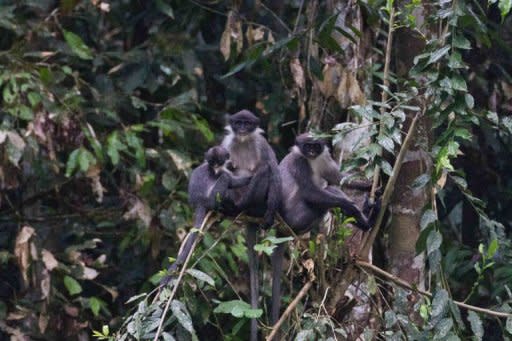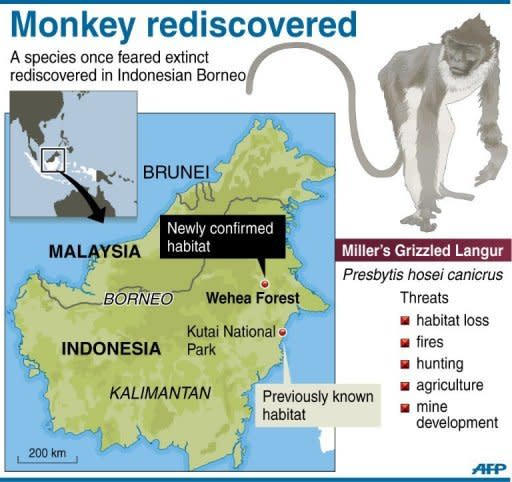Rare monkey is rediscovered in Borneo
An endangered monkey known as the Miller's Grizzled Langur has been discovered on the island of Borneo in an area it was not previously known to inhabit, international researchers said on Friday. Little is known about the monkey, known formally as Presbytis hosei canicrus, but it is listed as endangered by the International Union for the Conservation of Nature due to massive habitat loss from fires, hunting, agriculture and mine development. It was believed to live only in the jungle in the northeast part of Borneo, which neighbors Indonesia's Java Island. But a recent expedition of scientists who set up cameras in remote parts of a largely undisturbed rainforest further west on Borneo, the Wehea Forest in East Kalimantan, captured images of what appears to be the monkeys. "Discovery of P.h canicrus was a surprise since Wehea Forest lies outside of this monkey's known range," said researcher Brent Loken of Canada's Simon Fraser University. "Concern that the species may have gone extinct was first raised in 2004, and a search for the monkey during another expedition in 2008 supported the assertion that the situation was dire." The team set up cameras at mineral licks where the monkeys gather, offering the "first solid evidence demonstrating that its geographic range extends further than previously thought," said the study which appears in the American Journal of Primatology. However, scientists were not initially sure exactly what the cameras had photographed, since the only sources they have for comparison came from museums. "It was a challenge to confirm our finding as there are so few pictures of this monkey available for study," said Loken. "The only description of Miller's Grizzled Langur came from museum specimens. Our photographs from Wehea are some of the only pictures that we have of this monkey." Next, researchers hope to learn more about how many of the monkeys may be living in the 38,000 hectare rainforest. "While our finding confirms the monkey still exists in East Kalimantan, there is a good chance that it remains one of the world's most endangered primates," said Loken.



